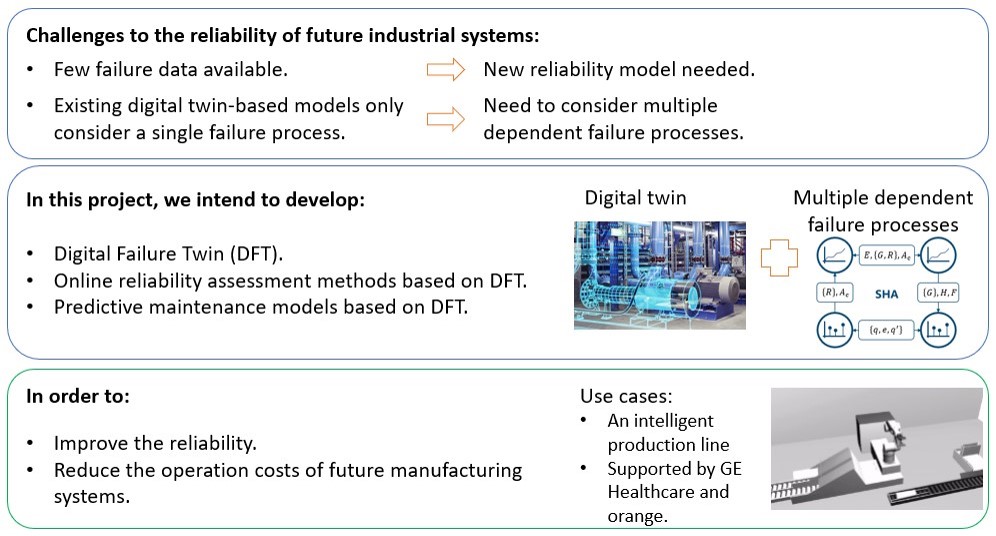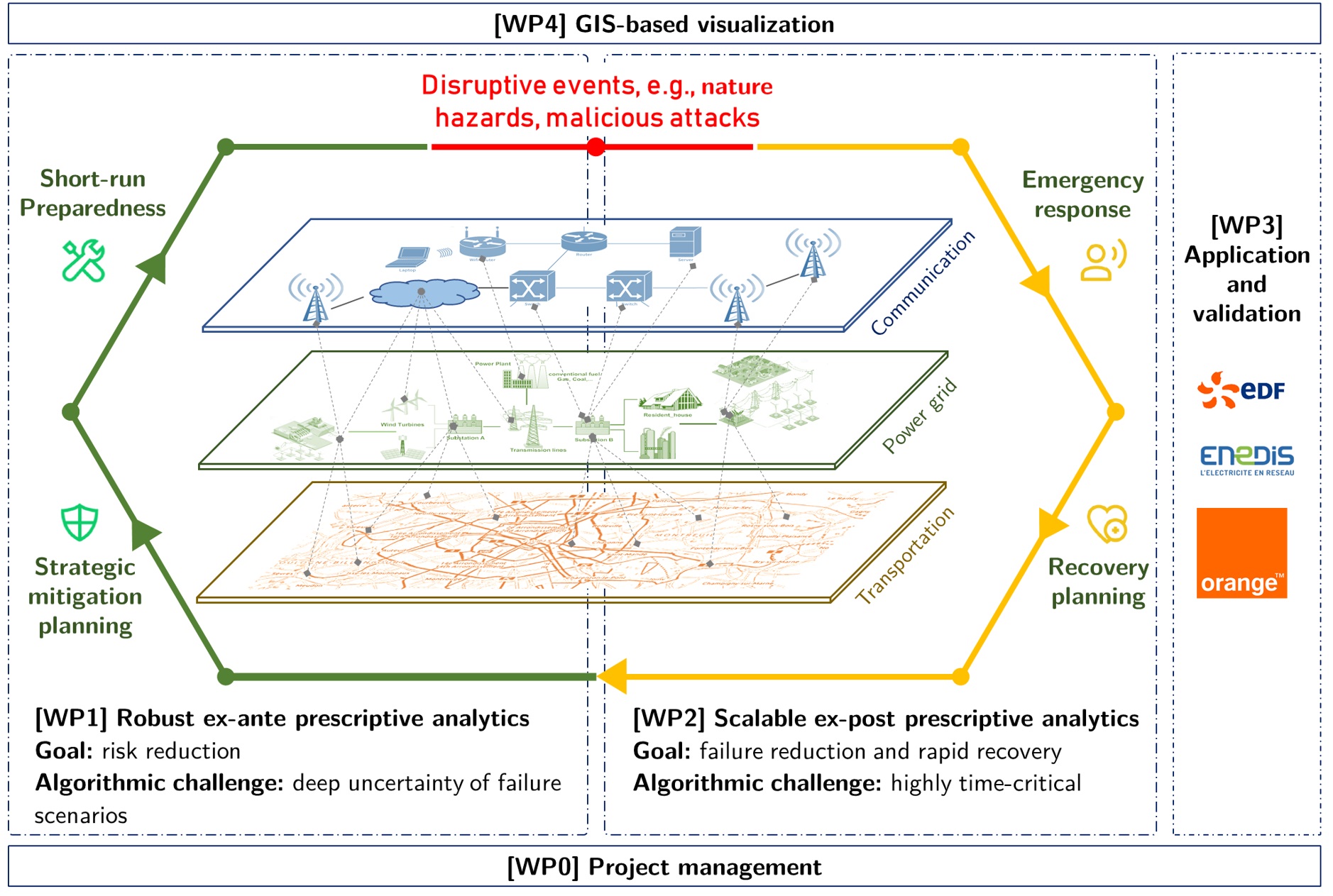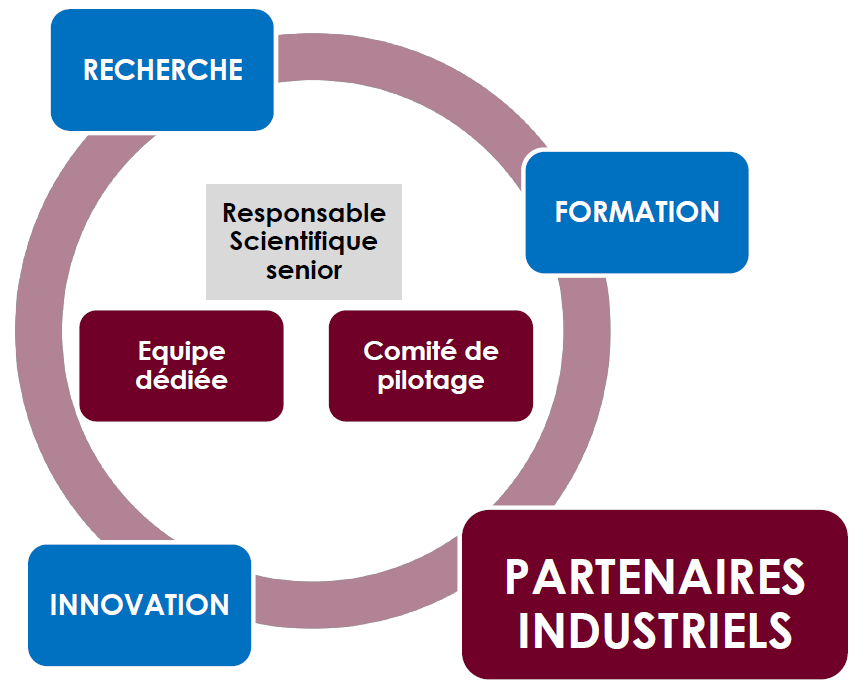Risk and Resilience of Complex Systems (RRCS), Industrial Chair, 2020 - 2024
The industrial Chair is supported by three industrial partners: Électricité de France (EDF), Orange, and the Société nationale des chemins de fer français (SNCF). This is an arena to define study cases, share knowledge data and experiences, develop methods, and implement benchmarks and prototypes of tools.
The scientific project includes three main axes:
- Modelling of systems of systems and their interdependences for risk management and resilience between several operators
- Modelling and optimisation of maintenance tasks in order to reduce their impact
on service continuity (internally and between operators) - Common models and methods platform
Digital Failure Twin for online reliability assessment and predictive maintenance of future manufacturing systems (DFT), ANR JCJC funded project, 2022 - 2026
The objective of the DFT project is to improve reliability and reduce operational costs of future manufacturing systems (e.g., intelligent production lines, smart factories) by developing digital twin-based failure models (called digital failure twin) to support online reliability assessment and predictive maintenance. More specifically, compared to the state-of-the-art methods, the developed methods would (1) more accurately quantify the reliability; (2) achieve more cost-effective maintenance scheduling through predictive maintenance.

Robust and scalable prescriptive analytics for the resilience of critical infrastructure networks (RoScaResilience), ANR JCJC funded project, 2022 - 2026
This project advances the body of knowledge on critical infrastructure network resilience by proposing robust and scalable prescriptive analytics to guide actions and decisions for effective resilience improvement. With this aim, we develop novel interdisciplinary approaches that integrate risk and resilience engineering, mathematical optimization, and (deep) reinforcement learning to improve 1) the ability to make robust planning of ex-ante strategic mitigation and preparedness actions under deep uncertainty of future disruptions caused by natural extremes, and 2) the ability to plan for effective ex-post response and recovery, emphasizing the computational efficiency of the method when applied to large-scale real-world systems.

